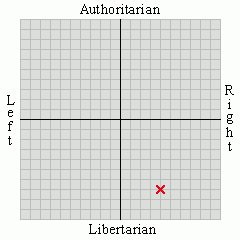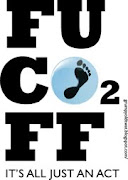...will pass the Senate with the support of the Greens.Is it speculative to wonder if the price for supporting Labor's pointless plain fag packets - pointless not least because it follows recently introduced laws that generally prevent the fucking packets being on display anyway - was the carbon tax and vice versa?
Who knows? But what I am very confident of is that these two pieces of legislation, one extremely divisive and the other egregiously illiberal, will each achieve as near to nothing as makes no odds.
"If this legislation stops one young Australian from picking up a shiny, coloured packet and prevents them becoming addicted to cigarettes then in my view it will have been worthwhile," Labor senator John Faulkner told the upper house today.It won't. Hell's bells, I'm getting tired of saying this, but just look at the illegal drug trade. Just fucking look at it. Do they have trademarks? Do they have shiny, coloured packets? No. Does the trade have any difficulty in retaining customers? No, but of course the nanny screams of "Addiction!" will be starting any second, so let's ask a different question. Does the drugs trade have any difficulty attracting new business despite the complete lack of trademarks and shiny, coloured packets? Again the answer is no. And the reason is that people want to take the bloody stuff. No, I don't particularly get the attraction either, but there's a very good chance that someone somewhere in this very suburb is getting wasted right now and we all know that whatever s/he's on came in some kind of plain and most likely ad hoc packaging. Hell, even illegal chop-chop tobacco already comes in plain packaging, and I'm sure the suppliers are just delighted that their main competition, the legal and regulated tobacco trade, are taking one in the crotch and losing one more thing that distinguishes the legal from the illegal product. And, er, correct me if I'm wrong but they don't even pay tax, do they? Christ, they must think all their Christmases came at once.
 |
| Via the Real World Libertarian |
Earlier this week Climate Change Minister Greg Combet rejected the idea that there are serious issues with international carbon trading and yesterday spoke rosily about the global carbon market's prospects while the EU carbon price crashed.And as that article also points out, arguments between the industrialised and developing worlds over a replacement treaty for the Kyoto Accord, itself not credited with achieving a measurable temperature change as far as I've heard, are deadlocked on the issue of whether the developing world is included this time.
To support his argument Combet cited the World Bank's Carbon Finance Unit State and Trends of the Global Carbon Market 2011 report that the market has now grown to $US140 billion ($136bn). But he's clearly only read it to recite convenient anecdotes.
According to the report "after five consecutive years of robust growth, the total value of the global carbon market stalled suffering from the lack of post-2012 regulatory clarity".
Meanwhile the price of some emissions permits "fell by double-digits for the third year in a row" and "shrank as well in 2010".
A carbon market recession should hardly come as a surprise.
[...]
Before its closure in the middle of last year, the price of voluntary Chicago carbon exchange permits plunged from $7.40 a tonne to a mere 5c.
And Europe's carbon price has not been in parity with Australia's $23 a tonne price since June and now sits at about $10 following a downward price trend.
As long as the EU's emissions trading scheme accounts for 97 per cent of the global carbon market, the price will be set in Europe and a price drop there will significantly influence whether emissions cuts will be achieved in Australia.
Worse, like the tobacco legislation, it seems that criminals are going to gain from this too, or at least have a bloody good try.
The Australian Federal Police is preparing to investigate cases of serious fraud that could arise from Labor's carbon pricing scheme, including the possible sale of bogus carbon credits.And of course they're quite right to if experience elsewhere is any guide.
The AFP's deputy commissioner of operations Andrew Colvin said a working group had been established with the Department of Climate Change to discuss possible responses to carbon tax breaches.
Appearing before a Senate committee hearing today, Mr Colvin said the AFP's efforts would focus on serious fraud offences, particularly those involving the sale of counterfeit carbon permits or credits.
 |
| Click for link - H/T to WUWT |
Marvellous.
UPDATE - Coincidentally WUWT has a post looking at Kyoto’s effects which concludes that it did nothing in signatory countries that didn’t happen in the US too, and did quite a lot less than the financial crisis. Now, about that carbon tax, Jules and Bob…


















